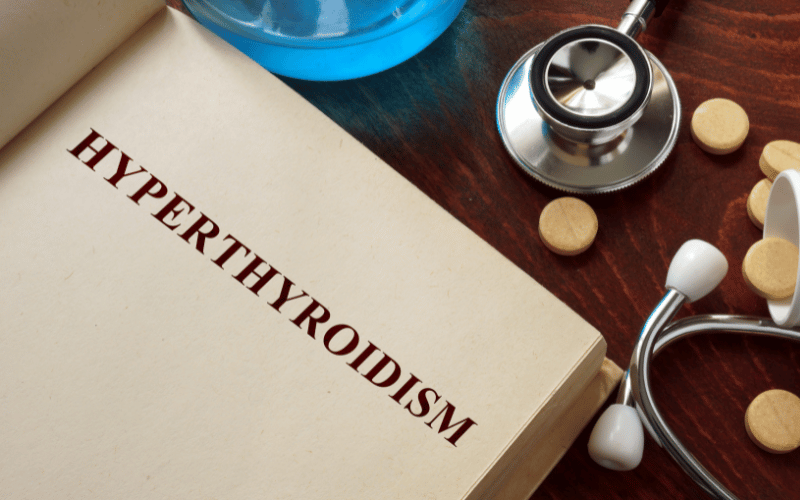Cause 7: Hyperthyroidism

The thyroid, a butterfly-shaped gland located in our neck, is responsible for producing hormones that regulate our metabolism. When it goes into overdrive and produces excessive amounts of these hormones, a condition known as hyperthyroidism results. Beyond palpitations or weight loss, this condition can have a surprising impact on our digestive system.
Excessive thyroid hormones increase the gut’s motility, which means that food moves through the intestines more quickly than it should. This rushed process doesn’t allow for proper absorption of water and nutrients, leading to watery stools or diarrhea. It’s the body’s indirect way of signaling that something is amiss.
Graves’ disease, an autoimmune disorder where the body’s immune system mistakenly attacks the thyroid gland, is a leading cause of hyperthyroidism. It not only affects the thyroid but can have cascading effects on various body systems, including the digestive tract.
The key to managing diarrhea related to hyperthyroidism lies in treating the root cause. Be it medications that reduce hormone production, radioactive iodine therapy, or even surgery in severe cases, bringing the thyroid hormones back to their balanced state will typically resolve the associated digestive issues.
It’s a reminder of how intricately connected our body systems are. A gland in the neck can influence a function as distant as digestion. Recognizing these links and seeking timely medical care can make all the difference in managing the symptoms and improving quality of life. (7)